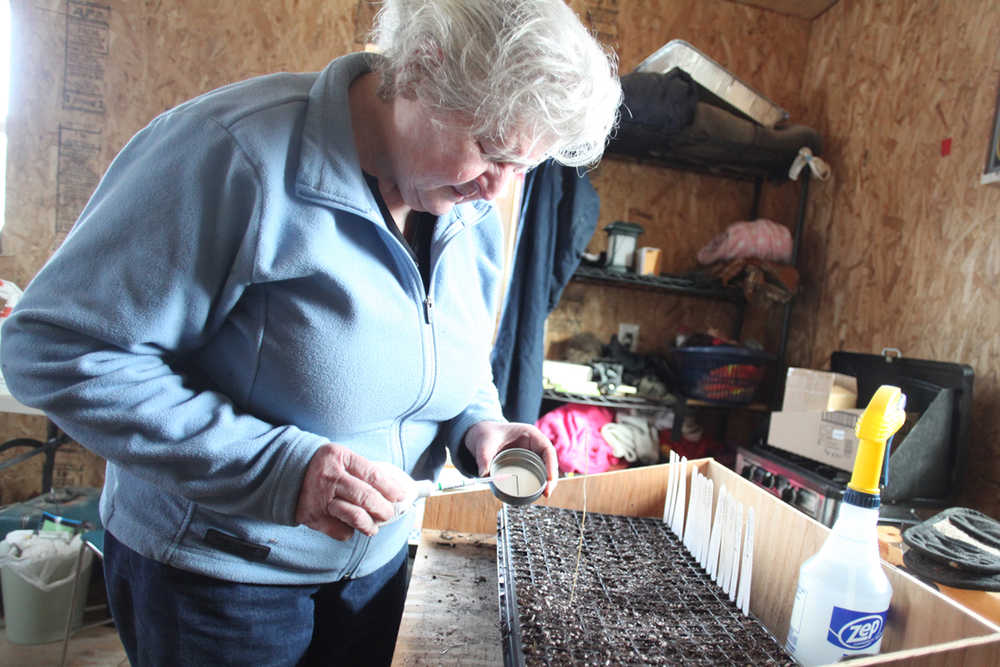Growing in a green industry means Kenai Peninsula farmers have had to plow their own way.
Producers are tasked with developing new market places, and finding consumers for their crops, which takes some creativity.
“Any beginning farmer in Alaska is going to face a certain amount of surprise when they say that they are going into farming,” said Louise Heite, who co-owns Eagle Glade Farm LLC., in Nikiski. “There is not a strong farm tradition here, and a surprising number of people still believe that you can’t grow food at this latitude. That is dead wrong…”
Heite who runs a vegetable, squab and herb operation with her husband, said the couple harvested their first yields last year, but had been considering their options for awhile. The two looked into what it would take to start up a small farm more than one decade ago. During their initial research, a local official advised them that their plans had a better chance to flourish up near Tok or Delta Junction.
“Nowadays, when people find out what we are doing, their first question is usually, ‘Do you sell what you grow?’,” Heite said.
And many aspiring and established growers are selling through farmers markets, direct to consumer sales, CSAs, or Community Supported Agriculture, online food hubs or getiting their value added products onto restaurants tables and store shelves.
Heite and her husband are now one of the few growers selling to a local restaurant. Within their first season Luke Thibodeau, owner of the Flats Bistro in Kenai, had put some of their produce in front of his customers. Within three years, she said, they hope to live entirely on revenue from their crop sales.
“Our main motivation is food security for ourselves, our neighbors, and perhaps ultimately our nation,” Heite said. “Alaska has a potential to become a breadbasket for the U.S. as the climate warms and the desert areas expand. We have a huge expanse of virgin land and it looks as if we will continue to have plenty of water even as other regions of North America dry out.”
As most local farmers do, Heite had to save up for years, clear their land of boreal forest and build up the soils before expecting much out of the ground. Brian Olson, owner of Alaska Berries in Soldotna, who is selling the only 100 percent Alaska Grown wine in the state, said most acquired land in the area will not be ready for planting without work. It takes preparation, investing in infrastructure, developing a business plan, finding crops that will thrive in the region and often advertising and marketing the final product, he said.
Olson now sells some of his value-added commodities to Three Bears and Country Liquors in Kenai after roughly five years of producing.
“Life doesn’t go that smoothly especially when you farm in Alaska…It is all leg work and footwork on our behalf,” Olson said. “There wasn’t any body that did it for us… That is the advice that I would give ‘before you ever spend a time develop a business plan’.”
Abby Ala, who runs Ridgeway Farms would agree it is best to start small. She has been building up CSA subscriptions for more than ten years. She started with eight the first year, and last year sold 80. Eventually she hopes to reach 300, and like Heite, have a sustainable income based on what she produces.
Ala said the way for a community to properly acknowledge a farmer is giving them the opportunity to live off of their enterprise.
“Honor your farmer,” Ala said. “Anyone willing to farm should be given respect.”

